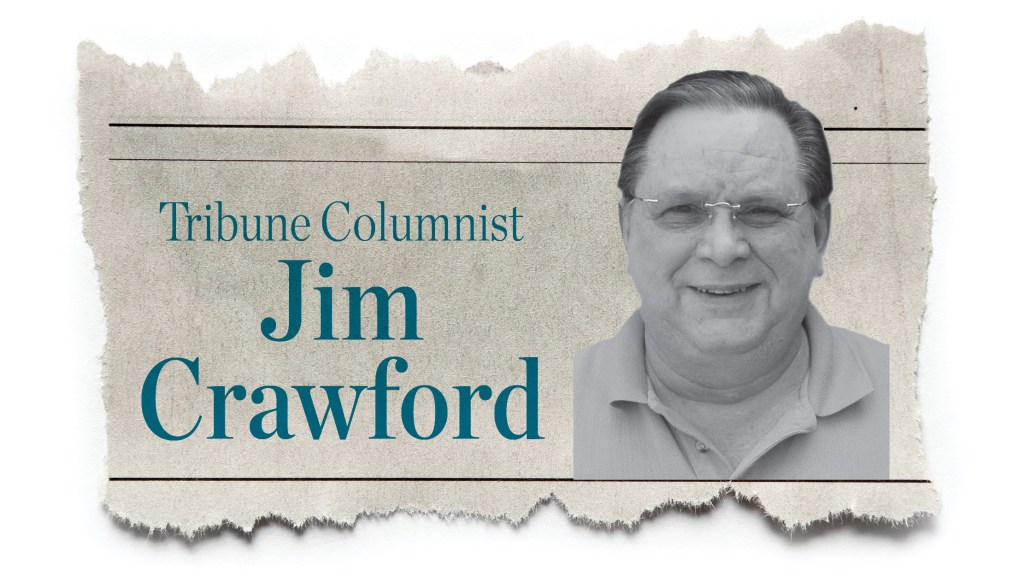Jim Crawford: Dealing with lies, lies lies
Published 12:00 am Monday, September 5, 2022
Does truth still have a place in our media?
The Internet is bathed daily in lies.
From false conspiracy theories about pedophiles in basements of restaurants (Pizzagate) to aliens landing in Utah to deliver a prophet, online anything goes, and truth often gets a shorter, colder bath than lies.
Trending
But are news and information networks held to different standards, or are lies told explained as “entertainment,” with news as little more than filler content?
Two recent court cases question whether “truthiness” is enough of an effort in reporting or if free speech must always be bathed in the clean, clear water of truth.
Pew Research Center reports that 62 percent of Americans get their news from social media. That is where Alex Jones, in his personally-enriching podcasts, has made his fame with some of the most outrageous lies in the political world.
Jones made it to court for his dishonest and hurtful claims to the families of Sandy Hook, where 26 died, including 20 six and seven-year-olds in 2012.
On his Infowars podcast, Jones said, “why does the government stage these things to get our guns.” He went on to claim the grieving parents were “crisis actors.”
Did the lies pay? Jones online businesses are estimated to be worth $135 Million to $270 million. While the $49 million awarded may diminish that wealth in a Texas court to the parents, Jones’ “war” against the truth continues, and conspiracy theories entertain his audience without end.
Trending
Jones, and those on both sides of the political spectrum, have free speech on the Internet, as recognized by the Supreme Court in the 1996 Reno vs. ACLU ruling.
Internet speech can no more be restricted than magazines, books or newspapers, But as the judgment against Jones above indicates, there are limitations to lies without foundation
The second case is an audience in the other news access point, TV, where about 35 percent of Americans listen to the nightly news from various providers.
Two technology providers, Smartmatic and Dominion, both providers of voting machines, are suing Fox News.
After the 2020 election, ex-president Donald Trump claimed the election was rigged and that the voting machines converted votes for him into votes for his opponent, Joe Biden.
At Fox News, several personalities advanced the claim that the voting machines had been tampered with, changing the outcome of the elections. But did the people at Fox know otherwise, that Trump had actually lost the election on election night?
Rupert Murdoch, owner of Fox News, told Trump advisor and son-in-law Jared Kushner on election night, when Fox called Arizona for Biden, that “the numbers are ironclad – it’s not even close,” suggesting the election was lost.
If Murdoch knew the election outcome, then so would his on-air personalities in the days ahead, days and nights, when they continued to advance the Big Lie that Dominion cheated Trump.
The Fox defense is that the network was merely reporting Trump’s claims, but texts here of Fox reporting: Lou Dobbs, “…what we have seen here: a cyberattack on our election, those voting machines, and software,” demonstrate otherwise.
Both the Dominion lawsuit for $1.6 billion and the Smartmatic suit continue through the court system, exposing Fox to significant legal liability.
What underlies both the Jones Internet case, and the Fox News case, is the issue of truth.
Does truth still have a place in our media? Can lies that harm companies, hurt people, and create distrust in the American foundation of voting get a longer bath in the public eye while the truth is only dipped in the water later, in the dead of night, when few are there to watch?
And ultimately, do we live in an age where free speech must be redefined to protect the truth and at the expense of every Big Lie?
Jim Crawford is a retired educator and political enthusiast living here in the Tri-State.





